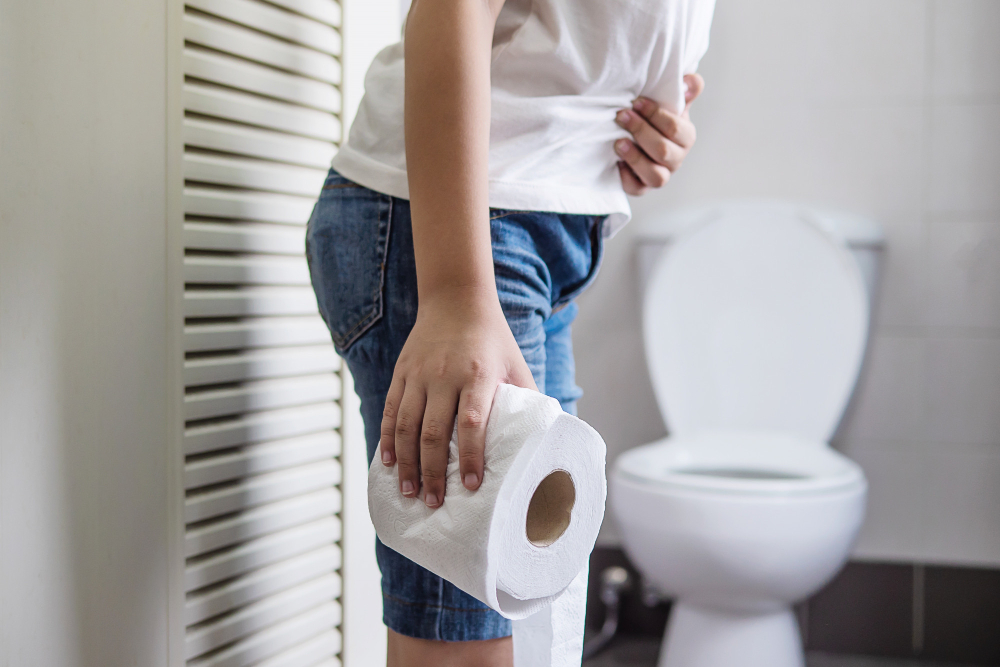Constipation isn’t just an annoying issue; it’s a signal from your body. This common problem could mean your digestive system needs attention. Ignoring it can lead to further discomfort and health issues. It’s essential to know what causes constipation and how it can affect your health. By understanding these aspects, you can identify constipation early and take steps to prevent complications.
Understanding Constipation: The Basics
Constipation occurs when you have less frequent or tough-to-pass bowel movements. You might notice hard, dry stools that are difficult to push out. Sometimes, you may feel abdominal pain or that you still need to go, even after you have already had a bowel movement.
Several factors contribute to constipation:
- Dietary choices: Eating low-fiber foods makes movements through your intestines slower.
- Dehydration: When your body lacks water, your stools can become hard and dry.
- Lack of exercise: Physical inactivity slows down your digestive system.
- Routine changes: Traveling or changes in your daily routine can disrupt your normal bathroom schedule.
Knowing these simple triggers allows you to adjust your habits. Sometimes, things like medications or health conditions, such as constipation in pregnancy, can also cause this issue.
Understanding what leads to constipation helps you determine the best approach for instant constipation relief by making small but meaningful changes in your diet and lifestyle.
The Health Risks of Prolonged Constipation
Experiencing constipation once in a while isn’t usually a cause for alarm. However, if it continues for a long time, it can lead to serious complications. Here are some issues that could arise from chronic constipation:
- Hemorrhoids develop from straining during bowel movements.
- Anal fissures can occur when hard stools cause tiny tears in the skin around the anus.
- Rectal prolapse protrudes when a small portion of the intestine pushes out from the anus due to excessive straining.
Be mindful of warning signs like severe abdominal pain, blood in stools, or significant changes in your bowel habits. These symptoms often warrant a doctor’s evaluation.
Constipation could also be signaling an underlying health issue. Sometimes, it hints at conditions like thyroid disorders or diabetes. This makes it crucial to pay attention to what your body signals about constipation.
Ignoring prolonged constipation can have a negative effect on your overall health. It can impact your appetite, mood, and energy levels. Chronic constipation can make daily activities uncomfortable and can even interrupt your focus at work or school.
Thus, identifying and treating chronic constipation early is essential. By doing so, you maintain better health and prevent the discomfort caused by more severe complications.
Lifestyle and Dietary Changes for Quick Early Relief
If you’re looking for quick constipation relief, simple changes to your lifestyle and diet can help a lot:
- Add fiber-rich foods to your diet: Foods like fruits, vegetables, and whole grains can promote healthier bowel movements.
- Stay hydrated: Drink plenty of water throughout the day to keep your digestive system functioning smoothly.
- Regular exercise: Physical activities such as walking, jogging, or swimming can stimulate your intestines.
- Establish a bathroom schedule: Try to have a consistent time each day to pass stools, even if you don’t feel the urge.
Making these adjustments can often relieve constipation quickly. Focus on these habits, especially if you experience constipation in pregnancy.
Sometimes, people turn to home remedies for constipation. These might include drinking warm fluids, eating natural laxatives like prunes, or practicing relaxation techniques. Remember, these remedies help, but they are not substitutes for medical advice when constipation becomes severe or prolonged.
A few lifestyle changes break the cycle of constipation and bring about relief without any medication. Plus, these habits promote overall health and well-being.
Debunking Constipation Myths and Finding Credible Solutions
There are many myths out there about constipation. Some say certain drinks and foods always cause it. Others worry that a bout of constipation automatically signals a severe health issue. It’s crucial to separate these myths from facts.
The emotional toll constipation takes is often overlooked. It can make people feel uncomfortable or embarrassed, affecting their social life and self-esteem.
For credible solutions, evaluate options carefully. Home remedies for constipation, like consuming natural laxatives and increasing water intake, provide instant constipation relief for minor cases. Over-the-counter treatments are also available but should be used with caution.
Consult a healthcare provider if constipation persists or if symptoms are severe. They can guide you through safe options for relief and help ensure that nothing more serious is causing your issues.
Understanding constipation helps in managing it properly. Avoid myths, focus on reliable information, and make informed choices for your digestive health.
